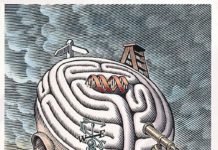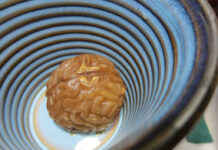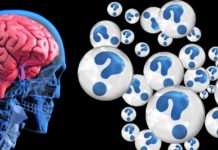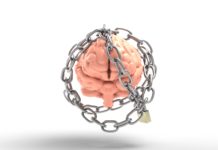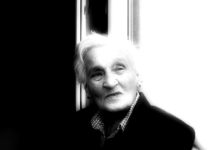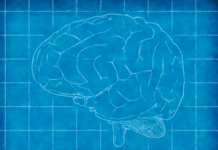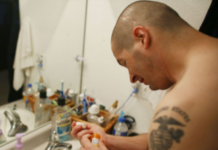Mental Health Concerns Not “Brain Disorders,” Say Researchers
The latest issue of the journal Behavioral and Brain Sciences features several prominent researchers arguing that mental health concerns are not “brain disorders.”
Not So Rare But Rarely Diagnosed: From Demonic Possession to Anti-NMDA Receptor Encephalitis
Throughout the ages, convulsions, contortions of the body and face, including the tongue, super-human strength, catatonic periods, long periods of wakefulness or sleep, insensitivity to pain, speaking in tongues, and a predilection for self-injurious behaviours have all been offered as physical evidence of possession. The modern day interpretation, however, comes with a plot twist befitting a media spectacle. There is growing consensus in the medical community that many prior accounts of “demonic possession” may have represented original accounts of what is now broadly known as autoimmune encephalitis.
Brain Scans Cannot Differentiate Between Mental Health Conditions
A new study analyzing over 21,000 participants found that differences in activation of brain regions in different psychological “disorders” may have been overestimated, and confirms that there is still no brain scan capable of diagnosing a mental health concern.
Brain Imaging Reveals Psychiatric Disorders are Not Neurological Disorders
Some researchers have been arguing to reclassify all psychiatric disorders as diseases of the brain and nervous system, similar to epilepsy or Parkinson's disease. Neuroimaging research, however, reveals that psychiatric disorders appear to be distinct from neurological disorders, according to a new study published in this month’s issue of the British Journal of Psychiatry.
Prazosin Ineffective for Preventing Suicidal Thoughts — May Worsen Nightmares
A new study found that prazosin was associated with increased insomnia and nightmares, and did not reduce suicidal thoughts.
Misconceptions About Brain Science Very Common, Study Finds
Researchers investigate commonly held misconceptions about brain research among Americans.
Sociologists Interrogate Neurobiological Explanations in Criminology
A discourse analysis conducted by sociologists finds problematic assumptions and practices in the field of neurocriminology.
Dementia Screening Tools Often Misdiagnose Patients
A new study has found that the three most commonly-used dementia screening measures often misdiagnose patients.
Neuroplasticity and How the Brain Heals
For The Lancet, Jules Morgan reviews a new book, “The Brain’s Way of Healing,” by psychiatrist and psychoanalyst Norman Doidge. Doidge challenges current understandings...
Researchers Develop New Model for Understanding Depression
Acknowledging that current depression treatments are failing many people, researchers from Michigan State and MIT have developed a new model for understanding how multiple psychological, biological, social and environmental factors contribute to depression.
The Connection Between Traumatic Brain Injury and Young Adult Suicide Risk
Researchers present evidence of a connection between the experience of traumatic brain injury in childhood and increased risk for suicide attempt in early adulthood.
“My Brain Made Me Do It” Becoming Common Defense
From Scientific American: Criminal defense strategies are increasingly utilizing neurological evidence—psychological evaluations, behavioral tests and brain scans—to potentially mitigate punishment. Last week, a group of scientists met...
“Veterans’ PTSD and Brain Injury Deserve Focused Research on New Treatments”
For STAT, Magali Haas reports on a research summit organized to improve the treatments available for PTSD. “If the goals are ambitious, the obstacles...
Football Destroyed My Husband’s Mind
In this op-ed for The New York Times, Emily Kelly, the wife of former NFL player Rob Kelly, shares the devastating impact that a professional...
How Our Military Discards Its Wounded Troops
From The Daily Beast: A newly released Government Accountability Office report found that 62 percent of military servicemembers who were discharged for misconduct between 2011...
Some Physical Conditions Are Linked With Increased Suicide Risk
From The Huffington Post: New research shows that 17 physical health conditions, including sleep disorders and diabetes, are associated with an increased suicide risk. Patients...
“FDA Agrees to New Trials for Ecstasy as Relief for PTSD Patients”
Last week, the FDA gave permission for ecstasy to move into Phase 3 clinical trials for the treatment of PTSD. “If they can keep...
Brain Injuries Change Lives — Some Find New Pathways, Some Don’t
-Two stories explore devastation and hope in response to brain injuries.
From Phrenology to Brain Scans: How Shaky Neuroscience has Influenced Courts
In “When Phrenology Was Used in Court,” Geoffrey S. Holtzman writes for Slate about the spurious use of brain science in legal cases. In the 1800’s the “science of phrenology” promised to reveal criminal psychological traits by measuring the skull and today defense teams still employ neurogenetic explanations for their client’s violent behavior.
“Being Smart About Your Child’s Brain”
In an Op-Ed in the New York Times, Frank Bruni weighs in on the “concussion crisis,” and the long-term effects that sports-related brain injuries...
It Remains Unclear How Head Blows Affect Behavior Over the Long Term
It's not clear how repeated injuries to the head that lead to neurodegeneration actually affect people's behaviors, argue University of Buffalo researchers in The...

